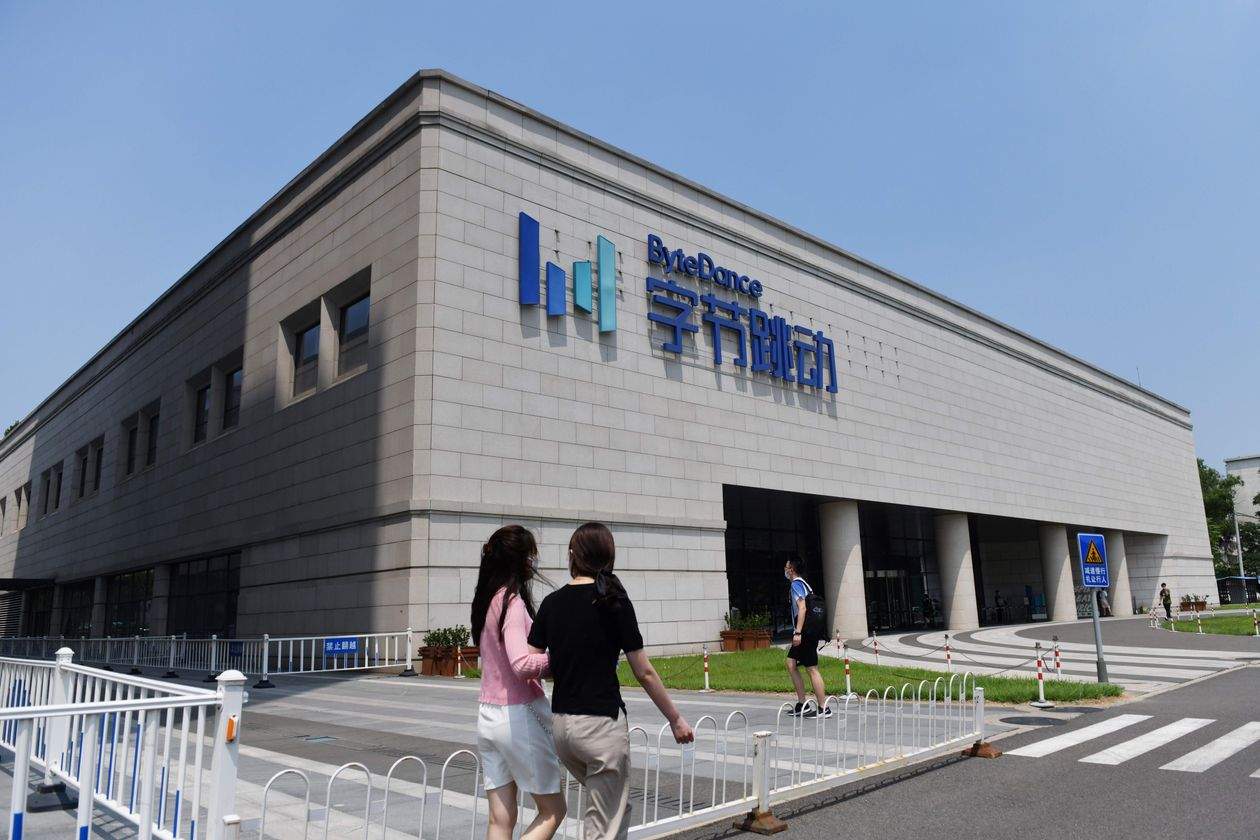TikTok Deal Talks Are Slowed Over New China Rules

Plans to quickly complete a deal between the Chinese parent company of TikTok and suitors for the app’s U.S. operations have been thrown off track as the parties huddled over the weekend to weigh new Chinese restrictions that appear designed to affect a potential sale, according to people familiar with the discussions.
China late on Friday issued new restrictions on the export of artificial-intelligence technology that forced ByteDance Ltd., TikTok’s parent, to slow down talks with companies including Microsoft Corp., Walmart Inc. and Oracle Corp. for a portion of the social-media app, according to people familiar with the matter.
ByteDance, which had received the broad outlines of bids on Friday for the TikTok assets, had been expected to enter into exclusive discussions with one group of suitors over the weekend, the people said. The Trump administration in early August set a mid-September deadline for ByteDance to sell its American operation.
Microsoft and Walmart have been working together, and Oracle also has been joined by ByteDance investors General Atlantic, Sequoia Capital and Coatue Management LLC.“We are studying the new regulations that were released Friday,” ByteDance General Counsel Erich Andersen said. “As with any cross-border transaction, we will follow the applicable laws, which in this case include those of the U.S. and China.”
The talks are far from being scuttled, but the latest developments do make clear that China plans to keep as close a watch on any potential deal as the Trump administration. President Trump and other U.S. officials have raised the specter of privacy and national-security concerns over TikTok’s data collection in demanding that its U.S. operations be sold or that it face a ban. TikTok has said it hasn’t and won’t share data on U.S. users with the Chinese government.
ByteDance has sued the U.S. government in federal court, saying that it protects user data and challenging an executive order from Mr. Trump that would effectively ban the video-sharing app if a buyer for its U.S. operations can’t be found.
The new Chinese restrictions highlight the extent to which TikTok, a breakout social-media hit—especially with younger U.S. users—has been thrust into a geopolitical contest between the U.S. and China over the future of global technology. China’s move to give the government a say in the outcome is an attempt to level the playing field with the U.S. and could affect other Chinese companies, some of the people said.
“We’re seeing geopolitical tension between the U.S. and China, and we are in the middle of that,” TikTok interim head Vanessa Pappas said in an interview with the “Today” show in mid-August, before China announced its new restrictions.
Those involved in discussions on a potential sale said they don’t yet have a complete understanding of how China will enforce the strictures, which were unveiled by the country’s ministries in charge of commerce and science and technology.
They cover such computing and data-processing technologies as text analysis, content recommendation, speech modeling and voice-recognition. Technologies on the list can’t be exported without a license from local commerce authorities.
On Saturday, China’s official Xinhua News Agency quoted a government trade adviser as saying that ByteDance should study the new export list and “seriously and cautiously” consider whether or not it should halt its sales negotiations.
The adviser, University of International Business and Economics professor Cui Fan, told Xinhua that ByteDance owes its success internationally to China’s domestic technology prowess and providing updated algorithms to companies overseas is a form of technology export. That means that no matter who is the new operator of ByteDance’s international business, there likely will be some cross-border technology transfer, he said.
ByteDance said on Sunday that it was aware of the new restrictions and would “strictly comply with” China’s regulations on tech exports.
The new rules in part appear to mirror U.S. regulations that limit technology transfer in mergers involving U.S. companies and foreign buyers.
The updated list of banned and restricted technology exports, which spans agriculture, pharmaceuticals and other industries, also specified new restrictions on laser technology, cryptography, chip design and other high-tech categories.
The continuing conflict between the U.S. and China, which earlier in the Trump administration was focused on tariffs, has come to focus increasingly on technology. In addition to TikTok, the White House also has targeted a growing number of Chinese tech companies, namely telecom giant Huawei Technologies Co. and Tencent Holdings Ltd.
Over the past two years, the U.S. government has campaigned to blacklist Huawei’s 5G technology globally—with increasing effectiveness—citing security risks associated with its ties to the Chinese government. The Trump administration also has curbed Huawei’s access to foreign-made chips, squeezing its ability to source parts.
Tencent’s messaging app WeChat, which serves as a crucial bridge between U.S. businesses and the Chinese market, faces the same effective ban as the TikTok app, on national-security grounds.
Tencent has said that the president’s early August executive order appears to apply only to the international version of WeChat, meaning the majority of the app’s business, as well as other business units, would remain intact. Huawei said earlier this year that it “has never and will never do anything that would compromise or endanger the security of networks and data of its clients.”
Photo: ByteDance’s Beijing headquarters. The Trump administration set a mid-September deadline for the company to sell its American operation. - PHOTO: GREG BAKER/AGENCE FRANCE-PRESSE/GETTY IMAGES




